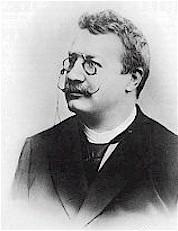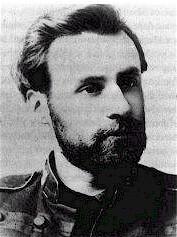
1799 - 1859 Person Name: George W. Doane Hymnal Number: 297 Author of "Fling Out the Banner" in The New Living Hymns (Living Hymns No. 2) Doane, George Washington, D.D. Bishop Doane was born at Trenton, New Jersey, May 27, 1799, and graduated at Union College, Schenectady, New York. Ordained in 1821, he was Assistant Minister at Trinity Church, New York, till 1824. In 1824 he became a Professor at Trinity College, Hartford, Conn.; in 1828 Rector of Trinity Church, Boston; and, in 1832, Bishop of New Jersey. He founded St. Mary's Hall, Burlington, 1837, and Burlington College, Burlington, 1846. Died April 27, 1859. Bishop Doane's exceptional talents, learning, and force of character, made him one of the great prelates of his time. His warmth of heart secured devoted friends, who still cherish his memory with revering affection. He passed through many and severe troubles, which left their mark upon his later verse. He was no mean poet, and a few of his lyrics are among our best. His Works, in 4 volumes with Memoir by his son, were published in 1860. He issued in 1824 Songs by the Way, a small volume of great merit and interest. This edition is now rare. A second edition, much enlarged, appeared after his death, in 1859, and a third, in small 4to, in 1875. These include much matter of a private nature, such as he would not himself have given to the world, and by no means equal to his graver and more careful lyrics, on which alone his poetic fame must rest.The edition of 1824 contains several important hymns, some of which have often circulated without his name. Two of these are universally known as his, having been adopted by the American Prayer Book Collection, 1826:--
1. Softly now the light of day. Evening. This, in addition to its use in American hymnals, is also found in the English Collections, including Snepp's Songs of Grace & Glory. Written in 1824.
2. Thou art the way, to Thee alone. Christ the Way. This, in the judgment of many, is the first of American hymns, and one of the most admirable and useful in the English language. In the United States its use is most extensive, and since its introduction into the English Collections by Bickersteth in 1833, Hall in his Mitre, in 1836, and others, it has grown in favour until it ranks with the most popular of the great English hymns. Near in merit to the foregoing stands a companion piece in the same work, which deserves to be better known :—
3. Lord, should we leave Thy hallowed feet.
The next three have been overlooked at home, but have obtained considerable circulation in English Collections.
4. Father of mercies hear, Thy pardon we implore. Ash Wednesday or Lent. A translation of "Audi, benigne Conditor" q.v.), published in his Songs by the Way, 1824, together with several other translations, thus anticipating by twelve years the great English movement in that direction. Original translation in his Songs by the Way, 1875Miller (S. & S., p. 12) attributes this translation to Dr. Neale in error.
5. Return and come to God. Invitation. In his Songs, &c, 1824. It is found in Hall’s Mitre, 1836; the Baptist Hymnal, 1879, and several others.
6. To thee, 0 Lord, with dawning light. Morning. This hymn is attributed to Heber by Miller (S. & S. , p. 381) in error. It is included in the Society for Promoting Christian Knowledge Hymns, 1852; in Windle and others. It is from the Songs, &c, 1824.
His later hymns, the dates of which are generally preserved in the last edition of his Songs by the Way, include the following, which are more or less in use :—
7. Beloved, it is well. All well in Christ. This is entitled "To my wife"; is dated Mar. 12, 1833, and was written in a copy of Dr. Bedell's "It is well." It is given in Kennedy, 1863.
8. Broken-hearted, weep no more. Assurance of Peace. The date of this hymn is not preserved. It is found as early as 1829, when it appeared in the 2nd edition of Cleland's (Baptist) Hymns.
9. Fling out the banner, let it float. Missions, Home & Foreign. This hymn, sometimes dated 1824 in error, was written at Riverside, 2nd Sunday in Advent, 1848, and is one of the author's latest effusions. It is in extensive use both in Great Britain and America.
10. He came not with His heavenly crown. The two Advents. In his Songs by the Way, edition 1875, this poem is dated Dec. 1827. In Dale's English Hymnbook, 1879, it is given with the omission of stanza iii., and in the American Protestant Episcopal Hymnal, 1871, it begins with stanza iv., "Once more, O Lord, Thy sign shall be." Full text in Lyra Sac. Amer., p. 92.
11. Lift not thou the wailing voice. Burial. A funeral hymn, adopted by the Anglican Hymnbook, but dated 1826 in error, for 1830.
12. What is that, mother? The lark, my child. This is not a hymn, but a familiar and long popular song.
13. "When darkness erst [once] at God's command. Israel in Egypt. In Kennedy, 1863, No. 722.
14. Young and happy while thou art. Youth for Christ. A favourite piece in many juvenile collections. It is dated Sept., 1827, and is given in Songs by the Way, 1875.
The Lyra Sacra Americana also contains the following:—
15. Brightness of the Father's glory. Morning. A tr. of "Consors Paterni luminis " (q.v.). It is from the Songs, &c, 1824.
16. Child that kneelest meekly there. Child at Prayer. Suggested by a cast from a piece of sculpture by Greenough representing a child at prayer.
17. Grant me, Lord, Thy graces three. Faith, Hope, and Charity desired.
18. Perfect through suffering may it be. Uses of suffering. Dated in Songs by the Way, "The Breakers, June 1, 1853."
19. Yes, it is a faithful saying. Redemption. In his Songs, &c, 1824. [Rev. F. M. Bird, M.A.]
-- John Julian, Dictionary of Hymnology (1907)
George Washington Doane




